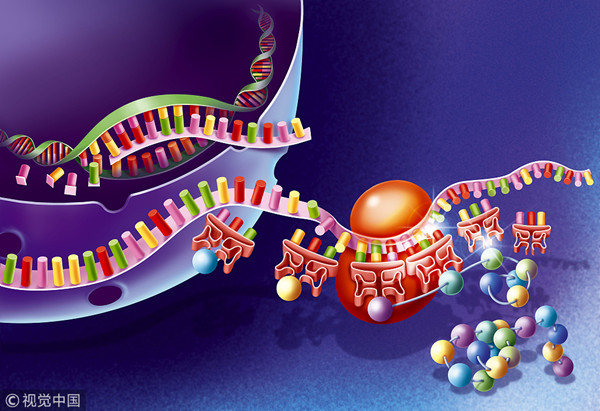Ethics should?guide use of technologies


In recent years there are several cases that highlight the potential risks rapidly developing technologies pose to society, if unchecked. The development of advanced technologies such as big data, artificial intelligence (AI) and gene-editing has unleashed huge innovation potential. But if used unethically and illegally, such promising technologies could become a Pandora's box.
In fact, several ethically controversial incidents have taken place because of the misuse of advanced technology. For example, thanks to big data, individual information could be used for illegal purposes, and the development of AI has further blurred the line between genuine and fake.
Although science and technology have propelled development worldwide, their unrestrained development and unchecked use could destroy the social fabric and established ethics.
True, scientific inventions such explosives, atomic energy and chemical technology created wealth and promoted material civilization, but they have also caused wars, environmental pollution, and social and political disorder.
Therefore, with the aim to safeguard the interests of humankind and take advantage of scientific innovation to boost social development, it is important that scientific activities conform to ethics.
Given the ethical controversy over scientific research and invention, various economies have stepped up efforts to formulate legislation and set standards for the use of advanced technologies, in order to take the lead in the forming international rules.
In 2018, the European Union put forward the General Data Protection Regulation, which, by setting guidelines for the collection and processing of individual information in the EU, would ensure big data technology is appropriately used. And in April, the European Commission released its Ethics Guidelines for Trustworthy AI, setting more detailed criteria for scientific ethics compared with other countries. The EU is also striving to become the trailblazer in setting rules in fields such as gene-editing and brain science.
In Japan, ethics guidelines for gene-editing technology drawn up by the Ministry of Education, Culture, Sports, Science and Technology and the Ministry of Health, Labour and Welfare were implemented in April.
The United States, too, is gradually changing its attitude toward and stance on granting permission for scientific and technological trials.
Therefore, it is highly important for China to establish a sound scientific ethics governance system in order to more actively excel in global scientific and technological competition, as well as to ensure the healthy development of advanced technologies.
Since a sound scientific ethics governance system is critical to modernizing China's overall governance system, it is important to focus on some crucial factors.
First, the authorities need to strengthen top-level designing. For instance, we can select some new technologies important to strategic development and then set specific principles for their use. And by coordinating with academia and the public, administrative bureaus need to establish ethics committees and standards for the use of technologies in trade.
Second, the authorities should explore all angles before setting rules or passing legislation on emerging technologies, and relevant departments should establish basic rules for data collection, use and protection, and take measures to prevent unfair competition.
As for AI, the authorities ought to set safety standards for its application, and crack down on new types of crimes involving data theft and AI abuse. And in regard to bio-technology such as gene-editing, the authorities need to urgently come up with rules for research and application.
Moreover, the authorities should strengthen science education, especially about scientific ethics, and tell scientific organizations and researchers that science and technology should be used for the good of society. An effective dialogue mechanism and communication platform is needed to be built for scientific and technological research.
The author is a researcher at the Institutes of Science and Development, Chinese Academy of Sciences. The views don't necessarily represent those of China Daily.


































